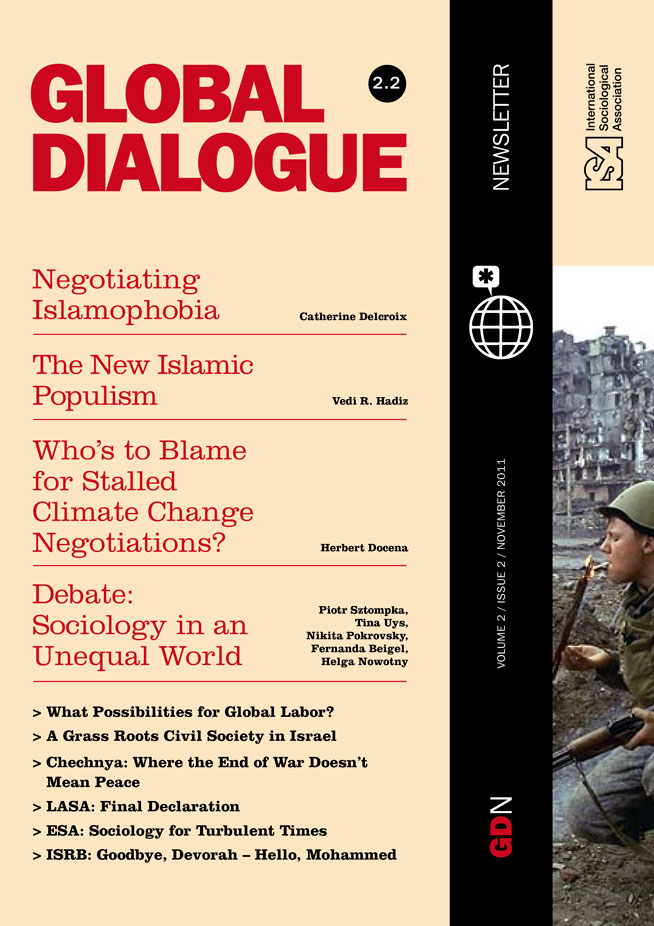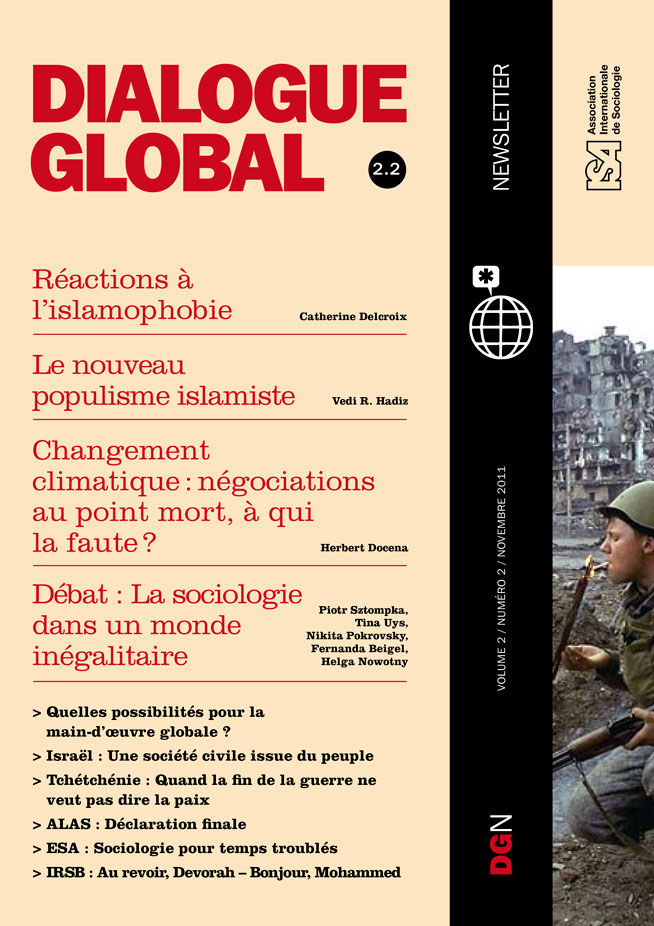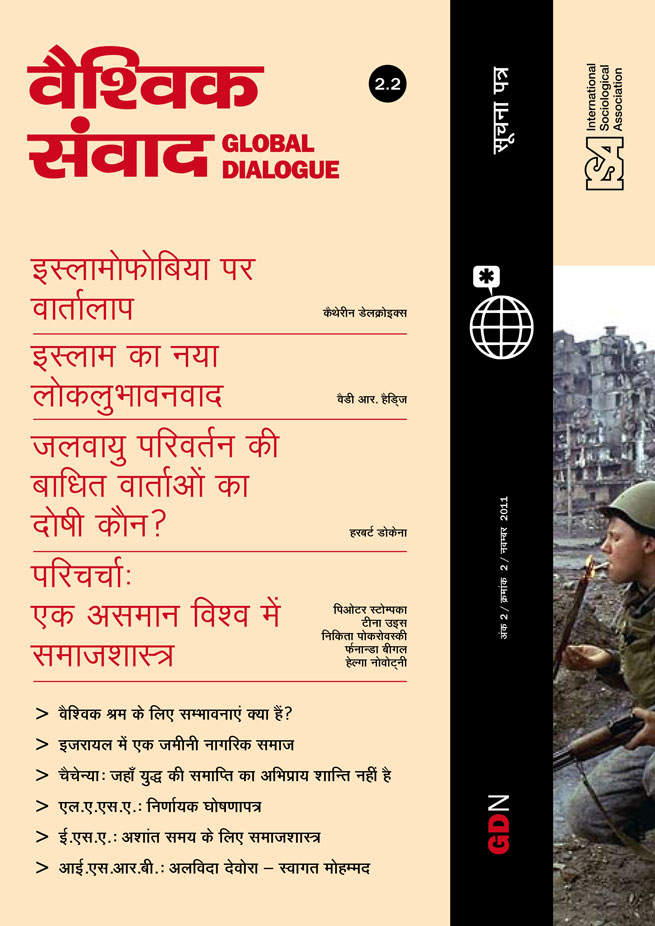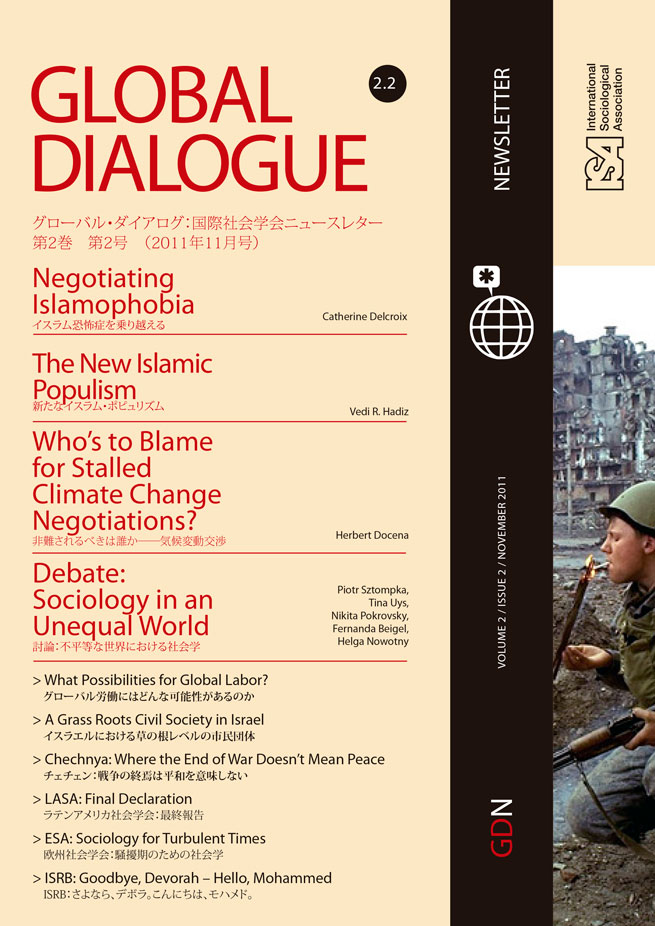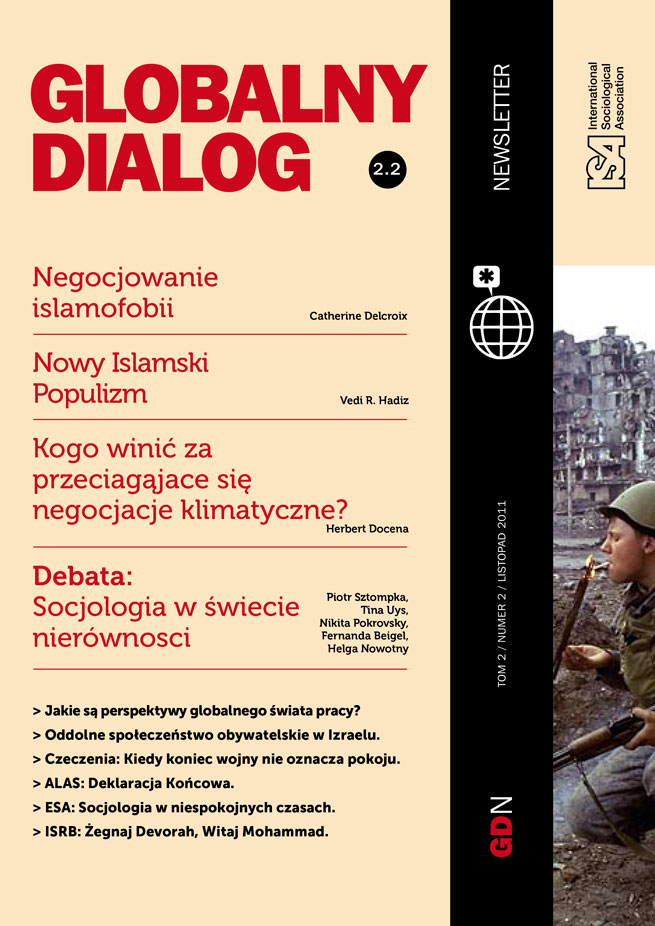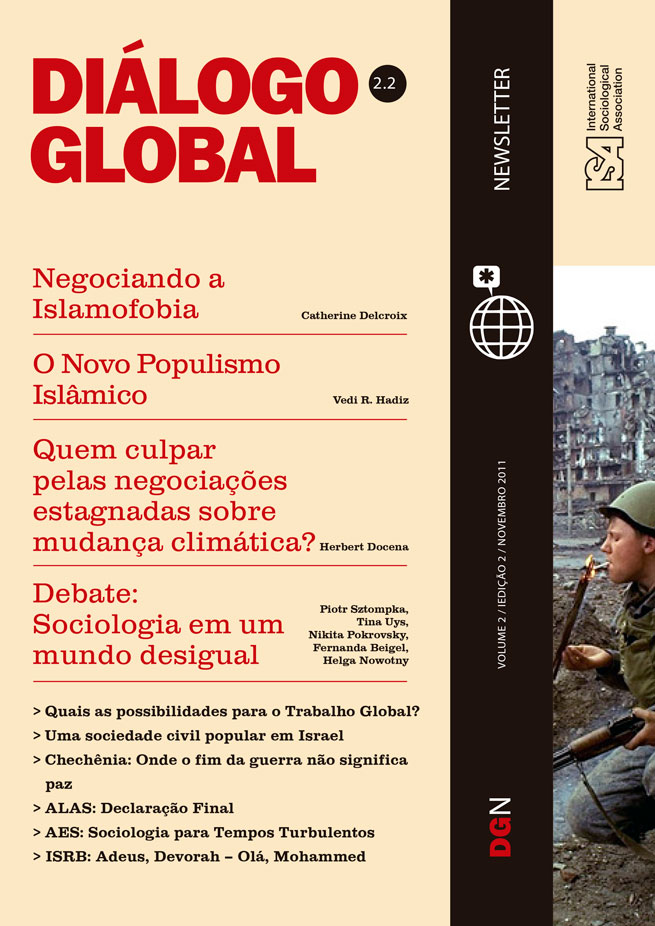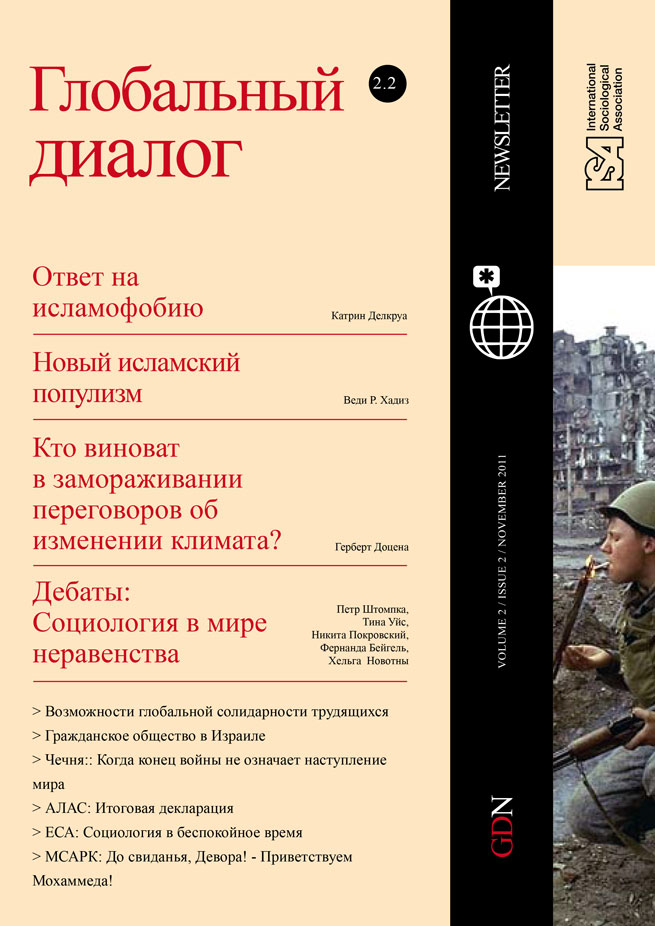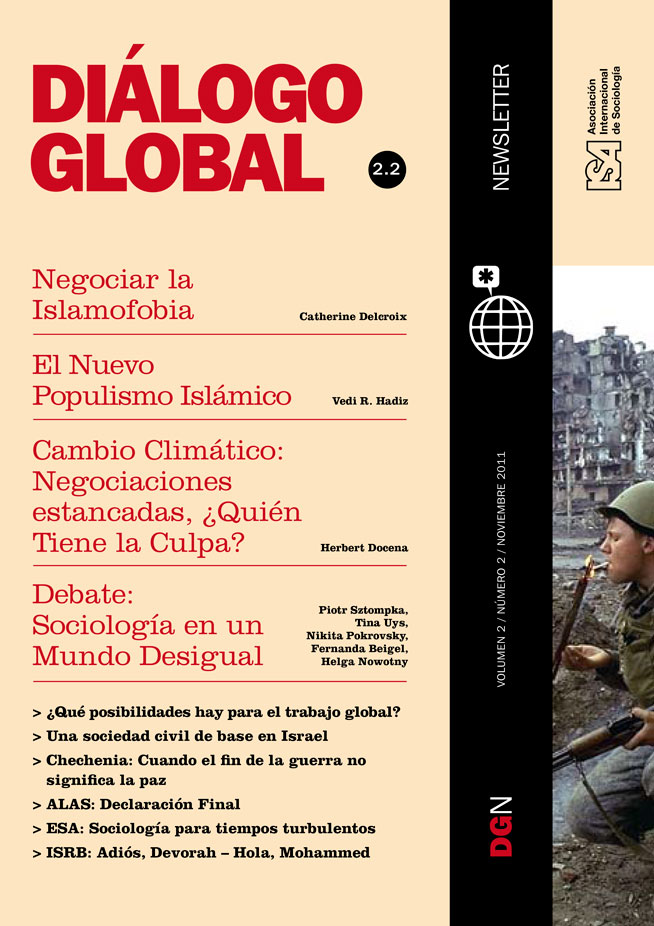Almost ten years ago at the ISA World Congress of Sociology at Brisbane 2002 I won the Presidency of ISA running on a very ‘politically incorrect’ slogan, ‘Excellence rather than balance’. Now the slogan seems relevant again, especially after the 2010 World Congress in Gothenburg and the sweeping victory of Michael Burawoy who again injected revolutionary fervor into the ISA: the claim of some ‘alternative’, ‘indigenous’ sociologies, the oppressive nature of Western methods and theories, and the ‘imperialism’ of the English language. We have stated our opposite points of view on the pages of Contemporary Sociology (July 2011, pp.388-404) but because this has led to a fundamental misunderstanding of my position, and earning me such undeserved labels as ‘the last positivist’, and a blind fan of the US, I want to state my case again as concisely and precisely as possible, in ten points. Michael has generously accepted my statement for Global Dialogue for which he deserves thanks. First, one should not draw epistemological conclusions from the actual conditions of the world, or from the concrete differences in the institutional status of our discipline in various parts of the world. Most sociologists, myself included, due to their professional sensitiveness are strongly aware of the unjust inequalities among, as well as within contemporary societies, which also include different research opportunities. But this does not imply that there must be a different sociology for the privileged and underprivileged. Good sociology is equally able to understand riches and poverty.
Second, in a reversal of a famous adage, if one really wants to change the unequal world, the first duty is to understand it. Again, most sociologists, myself included, are reform-oriented, but our activist aspirations cannot be realized by moralizing, preaching, or ideological manifestoes, but only by the discovery of the mechanisms and regularities of social life, including those creating and petrifying inequalities and injustices. Karl Marx spent most of his life in the library, and not on the barricades, and is a giant of social science not because of the Communist Manifesto, but because of Das Kapital.
Third, there is one sociology for many social worlds.[1] The mechanisms and regularities of social life are universal for human race, although, of course, their manifestations differ across civilizations, cultures, societies, or segments of societies. Even the latter, though, are slowly becoming more uniform due to globalization, except those which refer to unjust inequalities (North versus South, core versus peripheries, race, gender and class divisions within societies), as well as religious fundamentalisms (believers versus infidels).
Fourth, the standards of sociological research and good theory are universal, and included in the cumulatively developing toolbox of methods and the pluralistic archive of sociological theories. This has nothing to do with any ‘positivism’, because the qualitative methodologies as well as the interpretive theories dominant today, recognizing the peculiarity of their social subject matter, also require universal standards, even though the standards are different from those of ‘positivistic’ sociology attempting to imitate the natural sciences.
Fifth, the sin of origins does not disqualify the result. The historical fact that the standard toolbox and pluralistic archive of theories has been initiated by bearded old men, mostly Jewish, living in Germany, France and Britain, and then developed mostly in Western Europe and the US, has nothing to do with their intrinsic quality. The latter has always been and should be subjected to sceptical scrutiny, corrections and improvements. But rejecting this methodological and theoretical tradition as ‘imperialist’ is a mark of obscurantism. Instead I would recommend, with Newton and Merton, ‘to stand on the shoulders of giants’.
Sixth, the futile attempt to create ‘alternative’ or ‘indigenous’ sociologies is pernicious for the discipline. Science, including social science, does not know borders. It develops as a common pool of knowledge to which all national, continental, regional or even local sociologies are more than welcome to contribute. They may have unique research opportunities, unique research agendas, particular problem-emphases or orientations, but they do not require any alternative methodologies, or indigenous theories. Instead of arguing for the need for indigenous sociologies, my advice is: just do it. There is a lot of important sociological work done in the non-Western world. But it is usually based on standard methodologies and contributes to universal pool of theories. Nothing alternative or indigenous there, but simply good sociology.
Seventh, the claims for national sociologies do not make much sense in this globalizing and more and more cosmopolitan social world of today. The fact that countries or nation-states differ does not mean that their sociologies are, or should be, different. The only meaning of ‘national’ in this area has to do with some remaining institutional differences, different founding fathers, different research foci. But the results, if they deserve the name of ‘sociology’ and not just area studies or local statistics, must be abstract enough to enrich the universal pool of sociological knowledge. The future, also in ISA, is not with national sociologies but with research groups or networks (today’s RCs, TGs, or WGs).
Eighth, the historical fact that a natural language, English, rather than some artificial, specially devised language (say Esperanto), has become the most used communication tool in the airlines, tourism, computers, Internet and science, including sociology, is not a disaster but a great opportunity. This is particularly so for sociologists from limited language-areas (like my own) who now have at their disposal most of the universal sociological heritage (through translations into English) and acquire visibility and opportunity to contribute to the universal pool (by publishing in English).
Ninth, it is an error to believe that the existential situation of the researcher provides epistemological benefit. The disclosure of the mechanims and regularities of injustices and inequalities has not been the exclusive achievement of underdogs or insiders. Numerous examples point to the opposite. The only valid legitimacy in science can be provided by the quality of results and not the social status of the scholar.
Tenth, value judgments and ideological biases are unavoidable, and even admissible in sociology at the heuristic stage of selecting a problem, or research theme, but should have no place in the final results and their justification. And all values, as Gunnar Myrdal has advised[2], should be openly disclosed for debate. This is what I have been attempting in my ten theses.
[1] See my article in The ISA Handbook of Diverse Sociological Traditions (Sage, 2010), ed. by Sujata Patel.
[2] Objectivity in Social Resarch (New York: Pantheon Books, 1969).
Piotr Sztompka, University of Krakow, Poland, former ISA President


